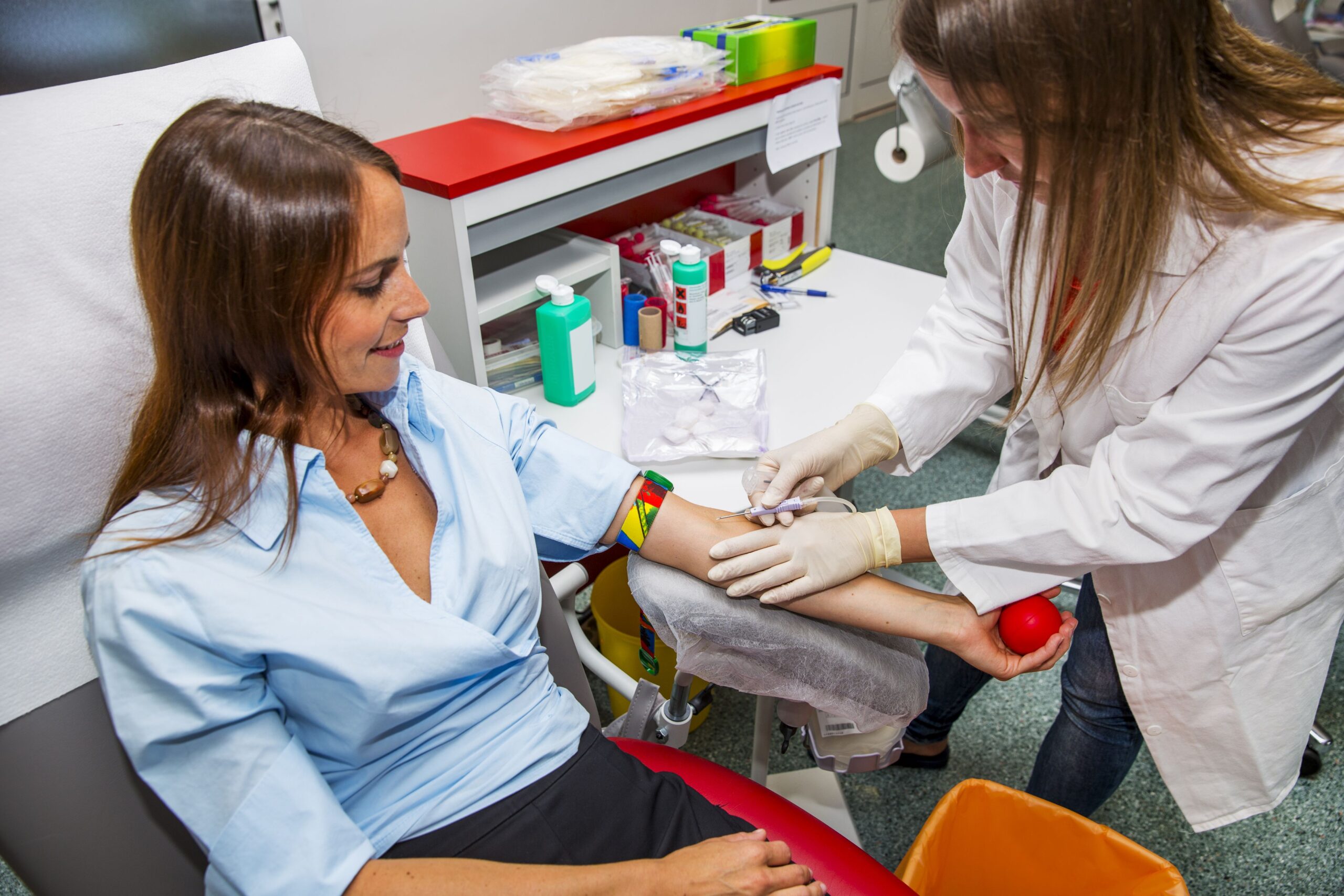Anemia, a common yet underestimated health problem, affects many people worldwide. It is characterized by a deficiency in red blood cells or hemoglobin. Red blood cells (RCBs) are critical in carrying oxygen through the body. It empowers your cells and gives you energy. Due to a lack of adequate RCBs, your body may not be able to function correctly. You must note that some symptoms of anemia are short-term, while others may be long-lasting. If not treated timely, anemia can be life-threatening.
To ensure you are healthy, you must get a routine body check at least once every six months. If you cannot visit a nearby diagnostic center, you can look for a lab that offers sample collection services at home. Healthcare providers may do home collection blood tests and other necessary tests to monitor your health and provide effective treatments.
Types of Anemia
Many types of anemia are there, each causing a drop in red blood cells. Some of these are:-
- Pernicious Anemia: Due to the deficiency of vitamin B12, an autoimmune condition called pernicious anemia develops. It prevents the absorption of vitamin B12 in the body.
- Iron-deficiency Anemia: As its name suggests, iron deficiency anemia is caused by a lack of iron in the body.
- Megaloblastic Anemia: If your body does not get adequate levels of vitamin B12 or vitamin B9 (folate), you may struggle with megaloblastic anemia.
- Sickle Cell Anemia: It is often caused by a mutation in the HBB gene. It may lead to the production of abnormal hemoglobin, causing the breakdown of RBCs.
- Hereditary Spherocytosis: It results from the defects in genes that control the structure of red blood cell membranes. It causes RBCs to become fragile and spherical and leads to their premature destruction.
- Hereditary Elliptocytosis: In this condition, RBCs become elliptical due to genetic mutation.
Who Is at a Higher Risk to Develop Anemia
If you have developed anemia, it is often said that you are anemic. It means that you have symptoms of anemia, like dizziness. Anemia affects people in different ways, such as:-
1. Newborns
Some little ones are born with low RBCs. They are at high risk of suffering from anemia. You may note that some of these babies do not need medical treatment, while others with severe anemia require proper treatments.
2. Infants
Infants may struggle with iron deficiency if they consume more solid food. Breast milk or formula iron is easily absorbed in an infant’s body compared to solid food. Thus, mothers should ensure their children consume solid food only in the required quantity.
3. Children
Between birth and two years of age, children grow and develop faster; hence, they need more iron. If children have iron deficiency and anemia, they may face developmental issues, such as fewer motor skills and learning issues.
4. Pregnant Women
Iron deficiency is common among pregnant women. It may increase the risk of health risks and complications, such as premature birth or newborns with less birth weight.
5. People Aged 65 Years or More
People aged 65 or above may have poor diets and suffer from chronic diseases. It may increase the risk of anemia, leading to more health problems, such as heat conditions and weaknesses. It may restrict a person’s mobility and affect his lifestyle.
6. People With Chronic Conditions
If you struggle with autoimmune diseases or cancer, you risk developing anemia.
Symptoms of Anemia
You must note that symptoms of anemia may vary from one individual to another. However, some of the common symptoms are mentioned below:-
- Fatigue
- Shortness of breath
- Dizziness
- Fast or irregular heartbeats
- Pounding or whooshing sound in the ear
- Pale or yellow skin
- Headache
- Vision problems
Diagnosis & Treatment
The expert healthcare provider may listen patiently to your health symptoms. Occurs due to fewer red blood cells in the body. They may do diagnostic tests to monitor your health to check if your body has adequate RBCs. Some of these tests include:-
1. Red Blood Cell (RBC) Count
This test is used to measure the levels of RBCs in your blood. Red blood cells help carry oxygen from the lungs to every cell in the body. The RBC test helps in diagnosing disorders like anemia. An increase or decrease in RBC count indicates you are unwell.
2. Complete Blood Count (CBC)
This test helps to monitor your overall health. The CBC test can detect various disorders affecting blood components, such as and infections. The test measures the total number of white and red blood cells.
If you cannot visit the nearby diagnostic center, no worries. Some centers provide home collection services, wherein healthcare providers may do blood test sample collection from home and provide quick delivery of medical results. After monitoring your health, they may provide effective treatments, ensuring you are safe and healthy.
Bottom Line
Anemia is a common health problem and should not be underestimated. It can be developed among people of all age groups. You must seek immediate medical attention if you experience any unusual health symptoms. Some common symptoms include pale skin, dizziness, headache, and vision problems.
Look for a leading center in India if you notice any of the above-mentioned symptoms. Look for a center which offers reliable services, like home collection, ensuring patients feel comfortable and satisfied. This way, you may get diagnosed and treated effectively with the precise home collection blood test.

